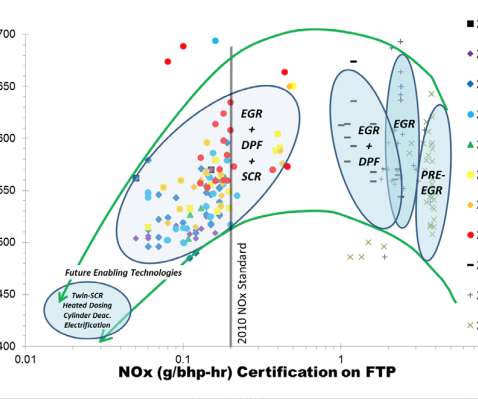MECA report assesses technology feasibility for heavy-duty diesel trucks to meet lower NOx standards by 2024
Green Car Congress
JUNE 11, 2019
Technologies such as cylinder deactivation (CDA), high efficiency variable geometry turbochargers with exhaust gas by-pass, and start-stop systems are only some of the commercially available fuel saving technologies that can be implemented by 2024. The cost of controlling NO x to 0.05 g/bhp-hr in 2024 and to 0.02 Credit: MECA.











Let's personalize your content